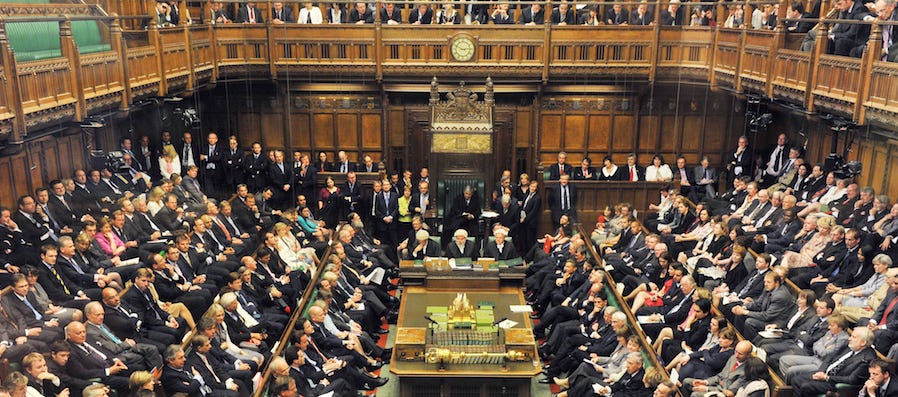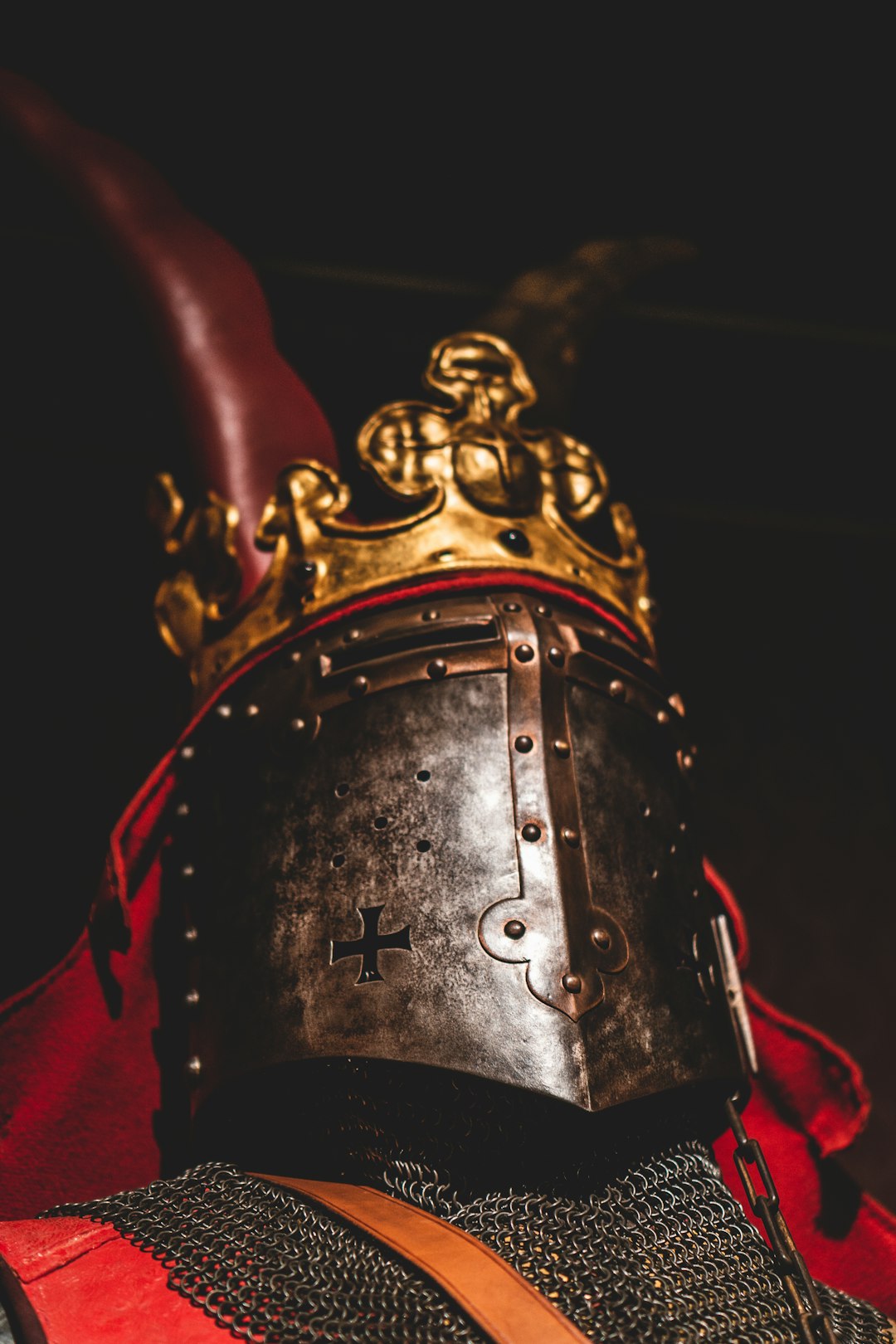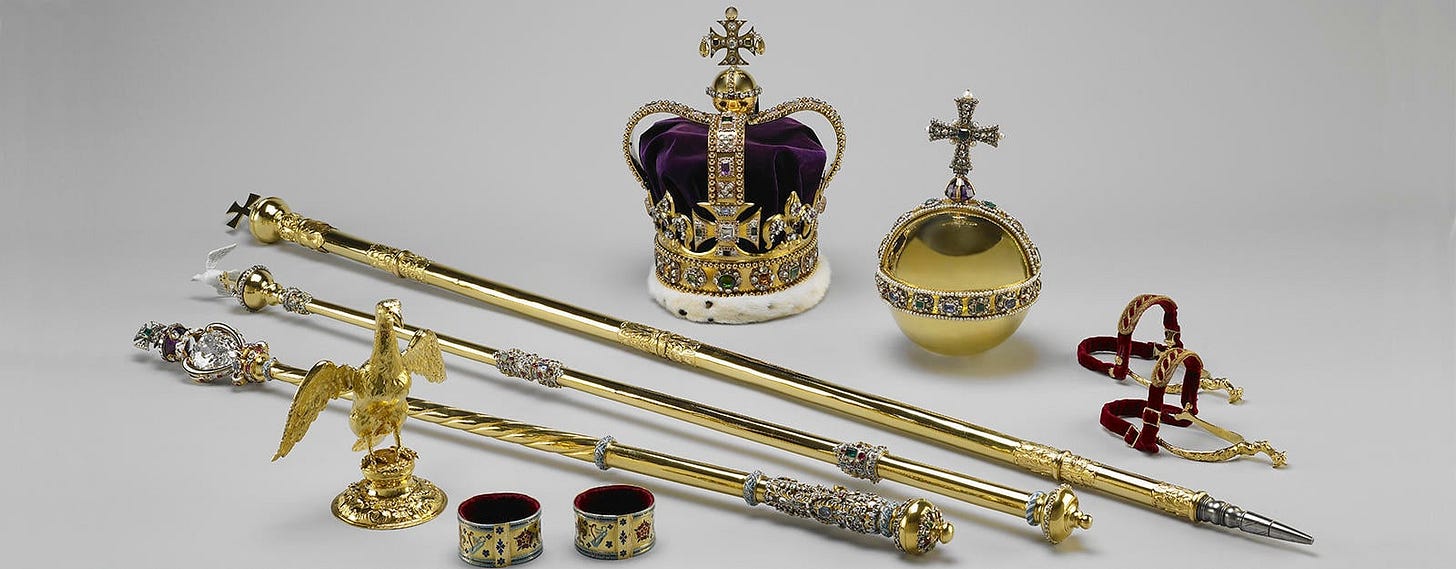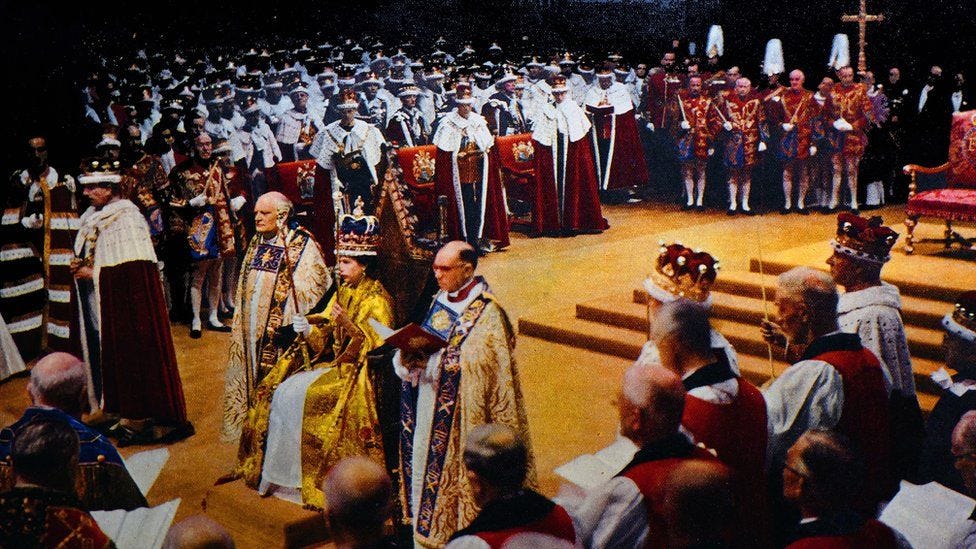Why I Care About the Coronation
Because kingdoms and kings are still important.
Dear Healthy Jew,
Watching the news coverage coming out of England this week, you’d forgive a naive American like me for thinking the setting goes something like this:
After six and half decades of courage on the battlefield, braving heat, pestilence, and the enemy’s sword, King Charles III will finally don the royal robes and crown at Westminster Abbey. He’ll be following in the footsteps of his valiant mother, Queen Elizabeth II, the warrior woman who smit thousands of knights in full armor, dazzling the British Empire with her guts, glamor, and glorious deeds.
This seems to me a reasonable background for the long-anticipated royal procession heading out of Buckingham Palace in centuries-old golden carriages to the abbey where kings (and a few queens) have been crowned for a millennium. Upon arrival, His Majesty will be presented with the royal regalia – crown, orb, and scepters – to cries of “long live the king.” He’ll then be anointed by special oil that was consecrated several months ago right here in Israel at Jerusalem’s Church of the Holy Sepulcher.
After the Archbishop of Canterbury pours the oil from its special golden flask (called “the ampula”) onto the special anointing spoon, the cameras will be extinguished for the sacred moment of anointment. The bishop will then place the royal crown on the royal head, and King Charles III will ascend the throne as the ruler of all British subjects. BBC reports that He may even be lifted up there by the archbishop, bishops and other peers of the kingdom.1 If they need an extra hand, I’m glad to help out.
It all sounds like a scene out of the Middle Ages.

Yet His Majesty has never known battle, nor will he ever. Neither did his mother. They didn’t wage war or make peace because it’s not in their job description. They don’t even govern, because governing requires power, and wielding power has been above English kings’ paygrade for centuries.
So lot’s of folks, especially those who still revel in the shabby Yankees’ victory over the bumbling redcoats at Lexington and Concord, watch all this coronation pageantry with unabashed amusement, perhaps a tad of cynicism. Come on, British friends and allies, get real. Stop pretending you have a king. You guys have a regular parliament and prime minister, just like the rest of us.

I respectfully disagree. I appreciate every solemn ceremony: not because I pledge allegiance to the King of England (believe me, I don’t!), but because the British monarchy is one of the last vestiges of absolute sovereignty in the Western world. Precisely because there’s so little left of it, royalty is critically important to behold.
Why do I care so much about the bygone glories of kings? Didn’t Winston Churchill, the non-king of England who did more for his country than any king since Arthur, famously remark that democracy is the “least worst form of government”? Don’t we revel in the fact that it was “we the people” who decreed the US Constitution, creating a government that’s (hopefully) by the people and for the people?
That’s all true. Yet I still want a king.
And I’m not alone. Even in the land of liberty, citizens unite every four years to anoint their king-of-sorts. They call him (or her, one day) POTUS, plop him in a special white palace, and invest him with unparalleled powers such as vetos and pardons. He can even wage war, so long as he’s careful to say that it’s only a special military operation. He can nuke us all on a whim.
Every President talks of the awesome responsibility and dignity of the office; some even behave accordingly. So just because we emasculate our kings by sending them home after two terms, and hopefully retain a balance of power in the three branches of government, doesn’t mean that we’ve completely evolved past royalty.
Yet this must be understood. Why can’t Congress rule the country alone, delegating vital decisions to this or that Senate Committee? Let’s grow up and govern ourselves for real. Just imagine how much money and tears would be saved without personality-centric presidential campaigns.
I’m not joking. Neither was Barbara Tuchman, the iconic American historian (from Guns of August), who in the wake of Watergate opined multiple times in the New York Times that the United States should abolish the presidency, nominating instead a rotating cabinet of six.2 Yet as far as I know the proposal was never seriously considered, and the office of the presidency has only increased its grip on the country and the world.
Why is that?
Because all people beg to be ruled. As much as we sincerely cry for liberty, equality, and independence, an even deeper call craves to join our fellow men in raising one of us high above the rest.
When we each stand alone, no matter how powerful may be as individuals, we can only go so far in life, and contribute only so much to the world. At some point, sooner or later, we’ll reach our end. Yet we always demand more, because to be human is to reach for what lies beyond. The probing mind seeks what remains hidden, always yearning to connect and find meaning, to touch, engage, and feel the infinite life outside our mortal bodies. For that reason, the mystics teach, the Hebrew word for person, adam, has the same letters as meod, which means “very,” that is, more. Man means more.
But how can earthly beings, intelligent as they may be, possibly reach beyond themselves, essentially dwelling in the realm of the spirit? There’s really only one way: by many people joining together to create a single, unified, and whole persona that presents to the world, and, more importantly, to each of the individuals that comprise it, a power and prestige far greater than any individual can ever muster. As the old saying goes, “The whole is greater than the sum of its parts.”
This assembly is called a kingdom, and its elevated, single persona, which was the point of it all, is its king. When his countrymen joyously proclaim him king, raising him above them through every sort of grandeur they can gather, they each own a tiny piece of his royalty. Jack is not only Jack, but a citizen of his country, the crowner of his king.
Human history is strewn with the graves of knights and infantry who died in the name of this god or that king, or this or that god who was their king. At first glance, the willingness of countless millions to sacrifice their lives for faraway monarchs sounds ludicrous. Why hasn’t every army in history walked home en masse to their families? Because the desire to join a kingdom is the fabric of our human spirits.
Yet crowning kings is not always simple, because there are many princes hanging around, all eagerly waiting for you and I to crown them. Some are decidedly evil, others fantastically good. Some are human, others divine. Some exist far above and beyond; others are higher expressions of our own spirits. All must be acknowledged and valued whenever they unite and uplift their subjects – and rejected when revealed to be pretenders with nothing authentic to offer.
Every community, even every family, is a kingdom. For example, our joining together at Healthy Jew every week (Healthy Jews, unite!) is a small but powerful act of crowning our health - that is, taking care of our lives - as a common purpose that unites and uplifts us. We can form online or in-person groups of health-seekers, little kingdoms of wellness. But it’s hard work, because we’re competing with so many potent, persuasive, and influential kingdoms of illness.
In fact, every decision we make determines who we will anoint in that moment: a benevolent king who will elevate us and our fellows, or a tyrannical despot who will push us right back into selfish pursuits of pleasure, power, and prestige. It's not always easy to discern genuine nobility from bogus fantasy, especially when physical attractions muddy our mental waters. To that end, hundreds of the Torah’s commandments are devoted to guiding the Jewish people toward the King of all Kings who provides them with wellness and success.
Yet even before opening my bible, I’m closely following King Charles III’s coronation, absorbing every image and delighting in every ceremony. It’s not often that I can watch royalty happening in real time. It’s worth paying attention, if only so that when I set out to anoint my own kings, I’ll have some idea what I’m looking for.
Food for Thought: Who are your kings? What kingdoms are you part of? Do they truly connect you with others for a greater purpose, or are they substance-free illusions of grandeur and pleasure?
Thank you for reading Healthy Jew.
Here are 2 great paths to continue the journey:
Also check out this intro and index to explore hundreds of posts about our 3 Healthy Jew topics: Wellness with Wisdom, Land of Life (Israel), and Sensible Spirituality.
Finally, always feel free to reach out here with any comments, questions, or complaints:
I look forward to hearing from you!
Be well,
Rabbi Shmuel Chaim Naiman
Please note: All content published on Healthy Jew is for informational and educational purposes only. Talk to a qualified professional before taking any action or substance that you read about here.
https://www.bbc.com/news/uk-65342840
Practicing History pp. 294-296, pp. 301-303










As an English person, thank you for articulating what the coronation means so well.
And I was pleased to read this morning that the Chief Rabbi will be able to attend.
https://www.theguardian.com/uk-news/2023/may/03/uk-jews-will-be-lining-streets-on-coronation-day-says-chief-rabbi?CMP=Share_iOSApp_Other
You will not be watching in real-time, Shmuel. It takes place on Shabbat. Sorry!